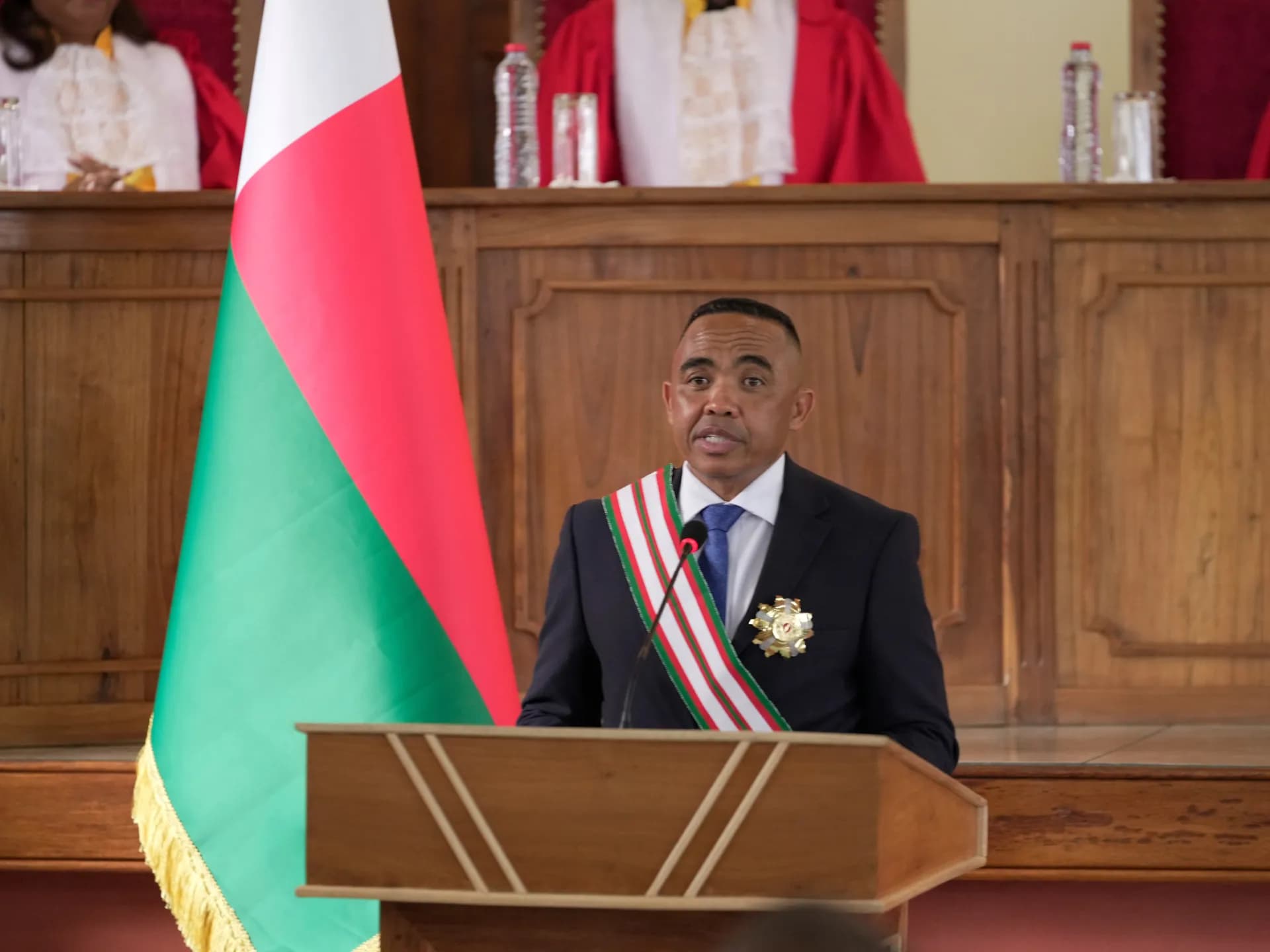We're loading the full news article for you. This includes the article content, images, author information, and related articles.
Madagascar's political landscape plunged into further uncertainty on Tuesday, October 14, 2025, as President Andry Rajoelina dissolved the National Assembly while refusing to step down amidst escalating youth-led protests and military pressure.

President Andry Rajoelina of Madagascar announced the dissolution of the National Assembly on Tuesday, October 14, 2025, through a decree posted on the presidency's Facebook page. This action comes as the nation grapples with weeks of anti-government demonstrations and increasing pressure from both protesters and elements within the military for his resignation. Rajoelina, currently in an undisclosed location after reportedly fleeing the country, stated in a social media address on Monday, October 13, 2025, that he had moved to a "safe place" due to threats on his life and refused to relinquish power.
The dissolution effectively pre-empts a planned impeachment vote against him by the opposition in the National Assembly. However, the legality of this move remains contested, with opposition leader Siteny Randrianasoloniaiko, also the National Assembly Vice President, asserting that the decree is "not legally valid" as the President of the National Assembly was not consulted.
Madagascar has been experiencing widespread unrest since mid-September 2025, initially triggered by severe power outages, water shortages, and allegations of corruption. These grievances quickly escalated into mass protests, primarily led by a youth movement dubbed "Gen Z," demanding Rajoelina's resignation. The protests intensified on September 25, 2025, when thousands defied a government ban to demonstrate in the capital, Antananarivo.
The crisis deepened significantly when the Army Personnel Administration Center (CAPSAT), an elite military unit, publicly aligned itself with the protesters on October 12, 2025, refusing to fire on demonstrators and escorting them in Antananarivo. This military defection marked a critical turning point, leading to reports of Rajoelina fleeing the country on Sunday, October 12, 2025, aboard a French military plane.
Rajoelina first came to power in 2009 following a coup that ousted then-President Marc Ravalomanana. His current actions are seen by some as an attempt to maintain control amidst a familiar pattern of political instability in the island nation.
President Rajoelina's decree to dissolve the National Assembly cites Article 60 of the Malagasy Constitution. However, the opposition argues that proper constitutional procedures for such a dissolution were not followed, specifically regarding consultations with parliamentary leaders. The National Assembly, prior to the dissolution announcement, was reportedly in the process of collecting signatures for an extraordinary session aimed at impeaching the President.
In a separate development on Tuesday, October 14, 2025, the CAPSAT military unit announced the suspension of the Constitution and seized power, establishing new structures for national renovation. This military declaration, led by Colonel Michael Randrianirina, stated that a transition period of two years would include a referendum for a new constitution. They also suspended five other institutions, including the High Constitutional Court and the Senate, but notably kept the National Assembly in place.
Youth-led groups, often referred to as "Gen Z," have been at the forefront of the protests, expressing deep dissatisfaction with the government's handling of basic services and alleged corruption. Student Santatriniaina Ramarojaona told Africanews, "All the population wants is his resignation, but he refuses and wants to keep working. Nothing he said matters." Another student, Marie-Joëlle Ravelonandrasana, added, "We want him to step down, but he keeps pretending there are still people who want him to stay."
The international community, including French President Emmanuel Macron, has expressed concern, emphasizing the need to preserve constitutional order and warning against the exploitation of youth for political or military purposes. The African Union (AU) Peace and Security Council convened an emergency session on Wednesday, October 15, 2025, to address the constitutional rupture.
The ongoing political turmoil in Madagascar poses significant risks to the country's stability and economic reforms. The International Monetary Fund (IMF) had noted rising fiscal pressures and weak domestic revenue collection in early September 2025, with government spending exceeding tax revenues in the first half of the year. The current unrest threatens to derail these fiscal consolidation and energy-sector reforms.
For Kenya, a key regional partner, the instability in Madagascar is a concern. Kenya maintains diplomatic relations with Madagascar, with embassies in both Antananarivo and Nairobi. Political instability in a fellow Indian Ocean nation can have broader implications for regional security and trade, although direct impacts on Kenya are not immediately clear.
President Rajoelina's exact whereabouts remain unknown since he reportedly fled the country. The legal validity of his decree dissolving the National Assembly is also a major point of contention, with opposition figures and legal experts questioning its adherence to constitutional procedures. Furthermore, the full extent of military involvement and the precise chain of command within the armed forces are still developing, adding to the uncertainty.
Observers will be closely watching for further reactions from regional bodies like the African Union and the Southern African Development Community (SADC), which may be pressed to mediate the crisis. The response of Madagascar's High Constitutional Court to the legality of the dissolution and the military's actions will also be crucial. The potential for snap elections, as suggested by Rajoelina, or the establishment of a transitional government by the military, will shape the country's immediate future.
Keep the conversation in one place—threads here stay linked to the story and in the forums.
Sign in to start a discussion
Start a conversation about this story and keep it linked here.
Other hot threads
E-sports and Gaming Community in Kenya
Active 9 months ago
The Role of Technology in Modern Agriculture (AgriTech)
Active 9 months ago
Popular Recreational Activities Across Counties
Active 9 months ago
Investing in Youth Sports Development Programs
Active 9 months ago